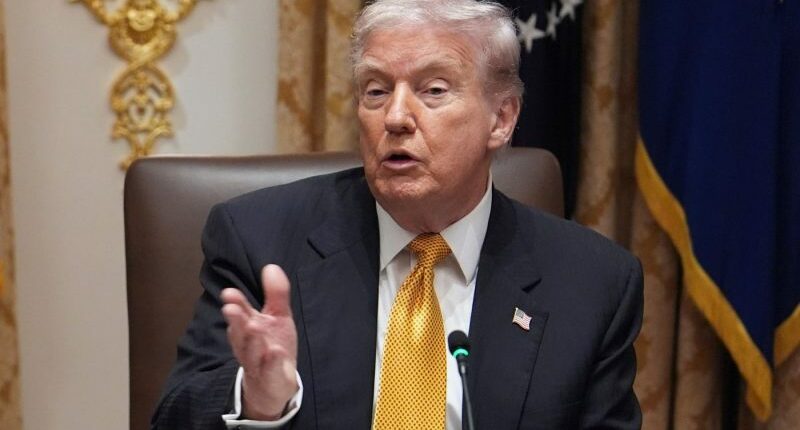Share this @internewscast.com

In a notable announcement on Sunday, President Trump declared that his administration plans to distribute at least $2,000 to every American from the funds collected through tariffs. He shared this information on his Truth Social platform, emphasizing that the distribution would exclude high-income individuals. Trump further criticized opponents of the tariffs, labeling them as “FOOLS!”
While the president’s proposal is ambitious, it would require legislative approval from Congress to become a reality. Earlier this year, Republican Senator Josh Hawley from Missouri proposed a bill aimed at providing $600 in tariff rebates to most Americans and their dependent children. Hawley emphasized that his legislation would allow Americans to benefit directly from the tariff revenues being generated under Trump’s policies.
However, the administration’s Treasury Secretary, Scott Bessent, has indicated a different priority for the tariff revenues. In an August interview with CNBC, Bessent stated that the administration intends to focus on reducing the national debt, which currently stands at $38.12 trillion.
The debate over the best use of tariff revenue continues, with differing opinions on whether it should be used to alleviate personal financial burdens or address the growing national debt. As discussions evolve, the outcome will depend significantly on congressional action and policy direction from the administration.
Treasury Secretary Scott Bessent, though, told CNBC in August that the administration’s priority is paying down the $38.12 trillion national debt using the tariff revenue.
On Sunday, Trump also said that the administration would pay down the “ENORMOUS” debt using tariff revenue.
The Hill has reached out to the White House for clarification on the president’s plan.
Through the first three quarters of this year, the Treasury Department collected $195 billion from tariff duties, according to its September statement.
But as of Oct. 17, consumers are facing an average effective tariff rate of 18 percent, the highest since 1934, according to the Yale Budget Lab. After the president imposed sweeping tariffs on trading partners around the world in April, firms have passed on some tariff costs to customers.










